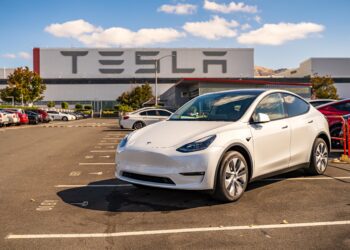Bolt Mobility is entering a crowded market in which many competitors are losing money and cutting back after two years of explosive growth. Can it thrive?
Usain Bolt is fast. He reached a max speed of 27.8 mph at the Berlin 2009 World Championship. But after his venture as the fastest man on the planet and a football player for the Central Coast Mariners in Australia, the Jamaican-born athlete chose retirement from athletics in 2017 and turned to business, but speed never left.
The 9-time Olympic gold medalist and internationally beloved runner co-founded and turned global ambassador for Bolt Mobility, a company that rents out eco-friendly electric scooters via app and has just recently closed a Series A funding round bringing total investment to $30 million at a $100 million valuation. According to Bolt Mobility’s co-CEO and co-founder, Dr. B. Sarah Haynes, a partnership with Bolt cemented the company’s mission saying “The ethos and DNA of our company is about being the best in class, having the discipline to be able to work hard and continuously improve; it was a perfect match (with Usain).”
Now, as the company operates over 5,000 scooters in cities from Fort Lauderdale, Miami, Alexandria, Arlington, Richmond, Nashville, Atlanta, Portland, and Paris, the big challenge is not debuting in the market, but staying in it, as major players like Bird, Skip, and Lime have enjoyed fast expansion but battled with strangled city regulation that take companies to cease their operations like Lyft in San Antonio and five other major U.S. markets. If that is not enough, injuries for scooter users have peaked in large cities like Austin, per a CDC study, as 1 electric scooter rider was injured for every 5,000 scooter trips, making this type of micro-mobility transport one that can harm and hurt common users. Plus, Uber and Lyft, the leaders of the transportation revolution, have admitted, per Axios, that ride-hailing is contributing to traffic congestion in cities.
Speed is not the problem, in fact, it never was, a Bolt scooter can reach a max speed of 30 mph, but in a changing world where cities turn to different means of transportation, the wrong approach to regulation can spell disaster, company loss, or even a high wave of traffic incidents, and as moving people and goods more efficiently is an urgent priority for many large and small metropolis across the world, some see clear benefits, but it’s urgent to see how a new business can operate policywise, even one as fast as Usain Bolt.
Global spending on smart city projects will reach nearly $124 billion this year, an 18% increase over 2019, according to IDC, a market research firm, so we can safely say Bolt Mobility and fellow competitors have a large window of opportunity — or disaster — right in front of them.
“It’s a new world of different types of mobility, and we don’t really know what the effects are going to be,” says Jessica Cicchino, vice president of research at the Insurance Institute of Highway Safety. “There do seem to be benefits, but now we have to see what can we do policywise.”












